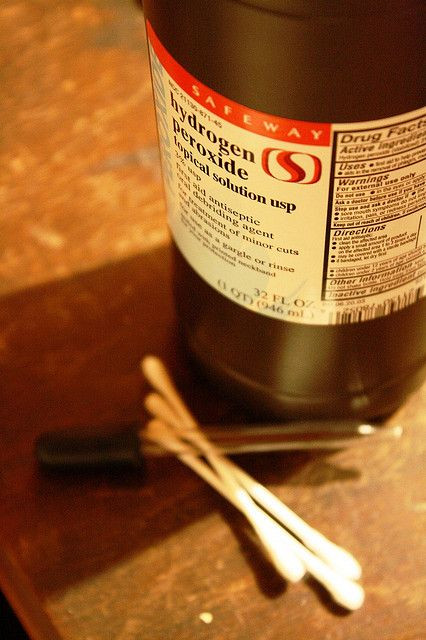The Dangers of Hydrogen Peroxide

While some individuals would choose alcohol to clean a wound, other prefers hydrogen peroxide. Why? Because it doesn't burn, however peroxide may not cause initial pain, but when absorbed through the skin it can cause a number of problems.
Peroxide is a solution made up of hydrogen and oxygen. It is a strong oxidizer and can be used as a cleaning agent and to prevent infections. When used topically, this antiseptic foams due to the enzyme catalase. As the catalase comes in contact with the skin it turns the hydrogen peroxide into water and oxygen gas.
However, many health experts warn that hydrogen peroxide should only be used topically, on the skin, and should not be ingested. According to health experts at the Swedish Medical Center in Colorado, hydrogen peroxide contains too much oxygen for the blood leading to potential issues. When your skin absorbs hydrogen peroxide, it can reduce the amount of fibroblasts, a particular cell that is imperative for cleaning and repairing damaged tissue.
The next time you find yourself with a cut, scrape, or minor puncture wound, opt out of hydrogen peroxide. Instead follow these tips offered by The American Academy of Family Physicians:
-Run cool water over the wound, either by pouring from a cup or holding the area under running water.
-Using a soft washcloth and soap, gently clean the skin.
-Avoid applying soap directly in the wound.
-Clean a pair of tweezers with isopropyl alcohol then use the tweezers to remove any dirt or debris in and around the wound.
-Avoid using strong cleansing solutions such as hydrogen peroxide or iodine. Use plain water unless otherwise directed by a doctor.
Additionally, you can apply petroleum jelly, which creates a moist environment that promotes healing in minor wounds. Then cover it with a bandage.



























